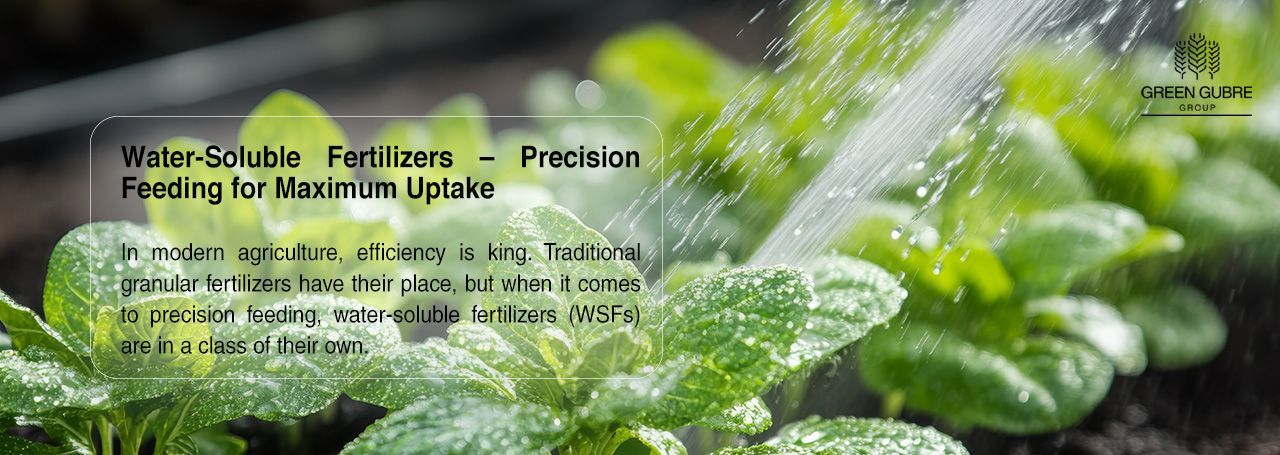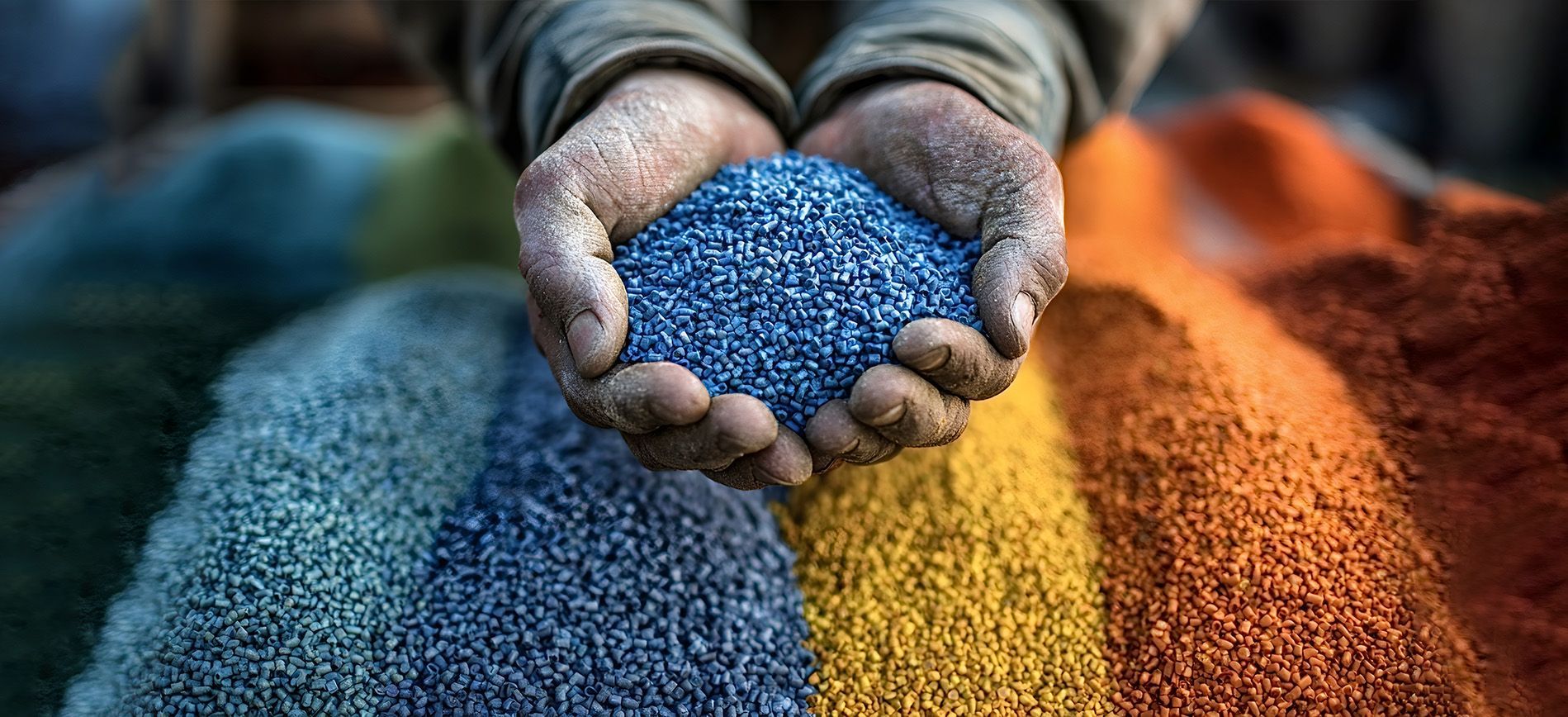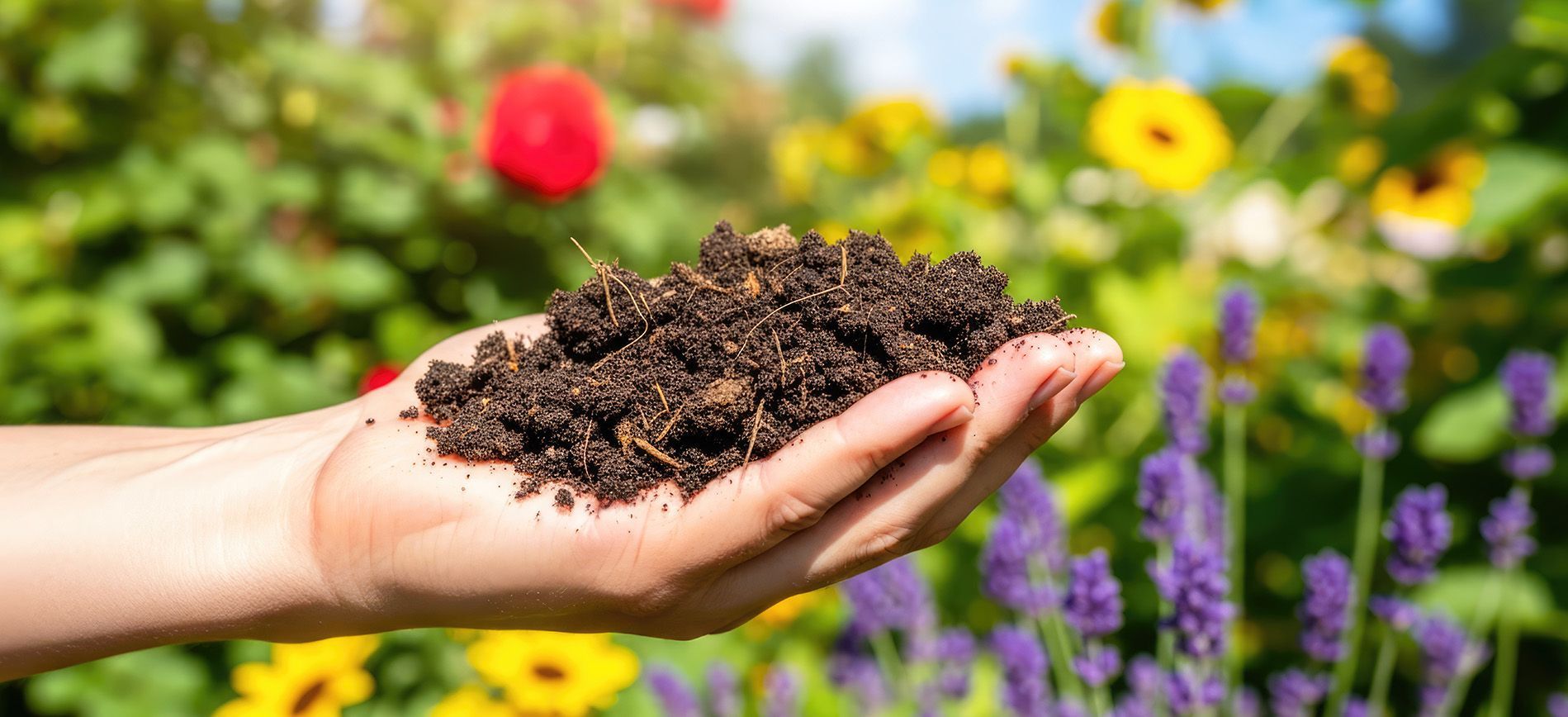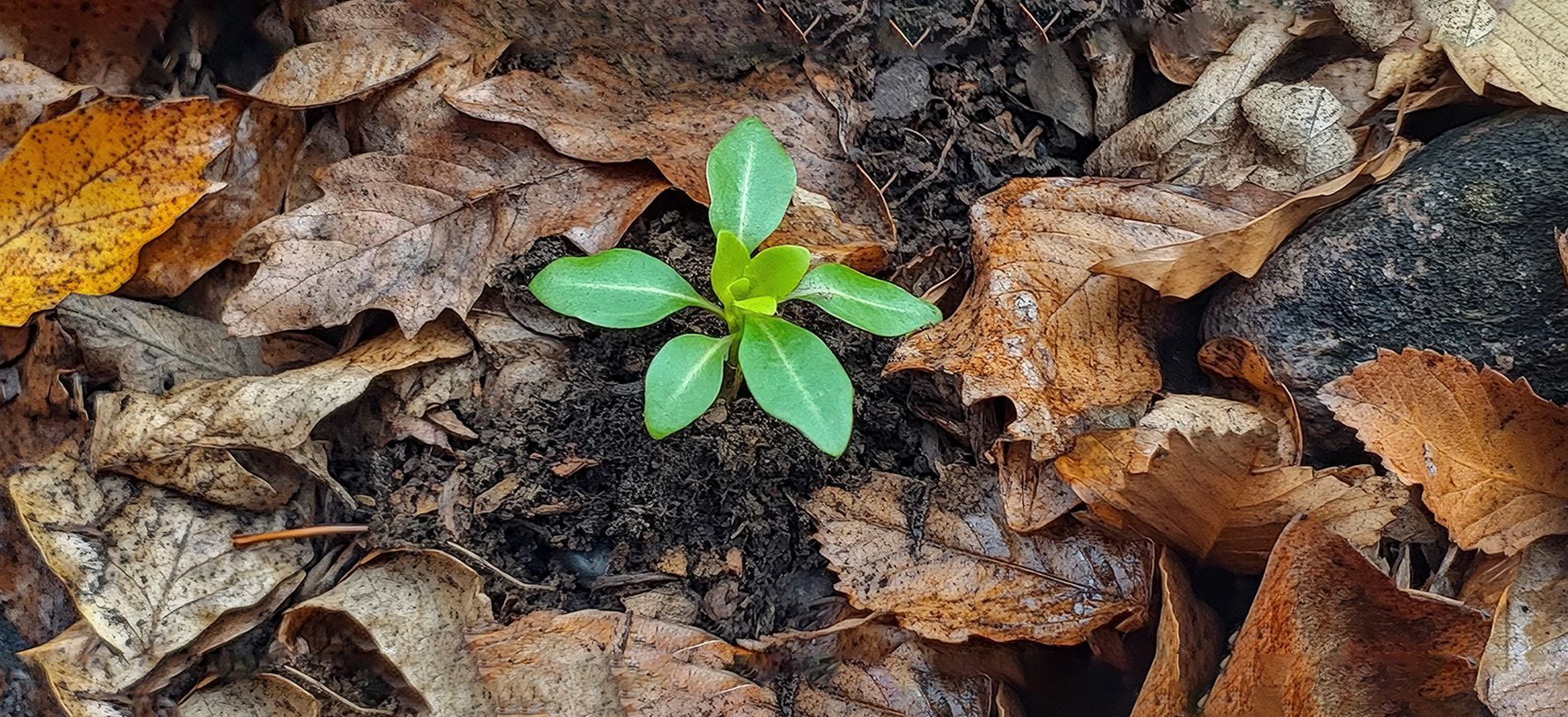Water-Soluble Fertilizers – Precision Feeding for Maximum Uptake
Water-Soluble Fertilizers – Precision Feeding for Maximum Uptake

Introduction: The Future of Fertilization Is in Solution
In modern agriculture, efficiency is king. Traditional granular fertilizers have their place, but when it comes to precision feeding, water-soluble fertilizers (WSFs) are in a class of their own. These highly soluble formulations dissolve entirely in water, enabling direct nutrient delivery through fertigation, foliar spraying, or hydroponic systems.
Whether you’re growing vegetables in greenhouses or high-value crops in open fields, WSFs allow unparalleled control over nutrient timing, composition, and concentration.
What Are Water-Soluble Fertilizers?
WSFs are dry or liquid fertilizers designed to dissolve in water, leaving no residue. They can be tailored to contain any combination of macronutrients (N, P, K) and micronutrients (Fe, Zn, Mn, Cu, B, Mo).
Common WSF product types:
- Straight nutrients (e.g., Calcium nitrate, Potassium nitrate)
- Blended NPK formulas (e.g., 19-19-19, 13-40-13)
- Micronutrient chelates (EDTA, DTPA, EDDHA)
- Specialty feeds with amino acids, biostimulants, or growth enhancers.
These products are ideal for integration with fertigation systems, allowing nutrients to be delivered directly through irrigation.
Key Advantages of WSFs
- High Efficiency and Bioavailability: Dissolved nutrients are immediately available for plant uptake, minimizing losses from fixation or volatilization.
- Precise Control Over Nutrition: Growers can match exact nutrient ratios to each crop stage—vegetative, flowering, or fruiting—every week, ensuring optimal growth and development.
- Compatibility with Modern Irrigation: WSFs work seamlessly with drip, sprinkler, and hydroponic systems, ensuring uniform nutrient distribution throughout the system.
- Lower Salt Index: Compared to granular fertilizers, many WSFs have a lower salt index, reducing the risk of root burn in sensitive crops.
- Versatility: Can be used in foliar sprays, fertigation, and even seedling trays or transplant dips.
Ideal Applications and Crops
Water-soluble fertilizers are especially suited for:
- Greenhouses and Shade Nets
- Vegetables: Tomato, cucumber, lettuce, spinach
- Fruit Crops: Strawberry, grape, citrus, banana
- Ornamentals and Turf
- Hydroponic and Soilless Cultivation
WSFs are often applied daily or weekly, depending on growth stage and climate, enabling maximum flexibility.
Market Trends: WSFs on the Rise
The global market for WSFs was valued at USD 12.3 billion in 2024 and is projected to exceed USD 20 billion by 2030. Growth is driven by:
- Adoption of precision fertigation
- Expansion of greenhouse farming in Asia and the Middle East
- Government subsidies promoting efficient irrigation and fertilizers
- Increasing demand for
clean-label fruits and vegetables
Green Gubre Group’s WSF Portfolio
At Green Gubre Group, we supply a wide range of high-performance water-soluble fertilizers:
- Balanced NPK blends: 20-20-20, 13-40-13, 15-5-30
- Straight nutrients: Potassium nitrate, monoammonium phosphate, calcium nitrate
- Micronutrient solutions: EDTA chelated Fe, Zn, Mn, Cu
- Customized formulations: Based on regional crop and water analysis
- Biostimulant-enriched WSFs: With seaweed extract and amino acids
We also support our clients with fertigation programming, injector calibration, and EC/pH compatibility testing.
Conclusion: Precision Feeds the Future
Water-soluble fertilizers are more than just convenient—they are a game changer for efficient, high-yield, and quality-focused agriculture. By delivering nutrients exactly when and where they’re needed, WSFs reduce waste, maximize uptake, and give growers the control they need to succeed in a competitive market.
Whether you’re a greenhouse grower or an open-field farmer, integrating WSFs into your nutrition strategy is a step toward more innovative agriculture.




